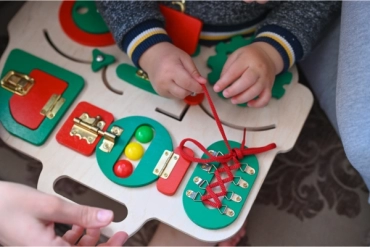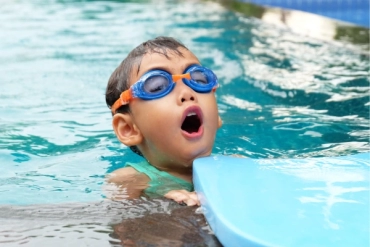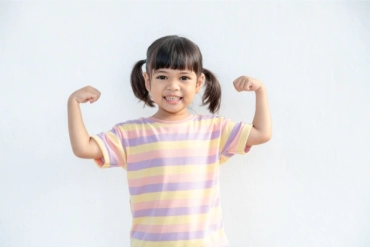Physical (PQ)
You may think that Physical Quotient (PQ) is all about athletics and, well, physicality. Sprinting, swimming, rock climbing (like our article here!) and all that sporty stuff. Well, you’re not entirely wrong, but that isn’t really the point of physical quotient.
Actually, physical quotient focuses on physical health, including motor skills, and overall fitness. It’s undeniable that academic prowess and emotional intelligence are important for a child to thrive.
However, physical quotient lays a solid foundation for that thriving future.
We at ONE Intervention wholly understand and support the holistic development of your child. Hence, we place great emphasis on physical quotient.
What Are The Key Components of Physical Quotient?

Motor Skills
Motor skills are a key part of physical quotient. This refers to the ability to plan and coordinate movements, including fine and gross motor skills.
Fine motor skills are smaller movements, such as buttoning clothes, writing, or grasping objects. Gross motor skills involve larger muscle groups, such as walking or running. Together, they enable your child to have a wide range of motion that can be adapted for various purposes.

Overall Fitness
Overall fitness in physical quotient refers to your child’s endurance, strength, and flexibility. It’s important for the child to maintain a healthy weight and prevent injury.
A high physical quotient empowers a child to have sufficient energy to participate enthusiastically in group play activities. Therefore, their physical fitness is crucial in ensuring their overall health and well-being.

Endurance
As part of physical quotient, endurance is a measure of your child’s ability to sustain physical activities for an extended period of time. For example, endurance sports include running and swimming.
With high endurance, your little one benefits from being able to maintain their energy for daily activities. These include walking and playing with their peers for extended periods, without getting tired. Thus, they are able to focus on the learning and happiness that such play offers.

Strength
Strength refers to your child’s ability to overcome resistance. In the context of physical quotient, this can be in the form of pushing objects or lifting weights.
However, it’s not just limited to athletics. Strength plays a key role in daily life as well. For example, your child requires sufficient strength to climb the stairs or carry objects. Strength empowers them to carry out daily tasks independently.

Flexibility
In physical quotient, flexibility refers to the range of motion in your child’s joints, which allows them to bend and stretch their bodies.
Good flexibility is paramount for your child. It ensures that they are able to reduce the risk of injuries in physical activities. Training their flexibility can also ensure a higher level of physical performance.
Why is PQ Important?
Improved Physical Development
- Healthy growth
- Strengthening of the musculoskeletal system
Enhanced Coordination
- Confidently participate in activities
- Safely navigate through their environment
Increased Confidence
- Increases self-esteem
- Boosts motivation to keep trying
Healthy Habits
- Sets the foundation for a healthy lifestyle
- Essential lifelong skill
